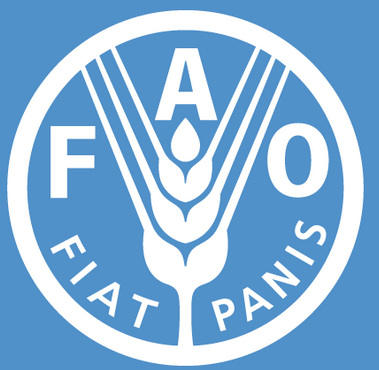FAO hosts international experts to manage Fall Armyworm
 The UN Food and Agriculture Organisation (FAO) is hosting experts from the Americas and Africa to deliberate on the outbreak of the Fall Armyworm (FAW) infestation that is rapidly spreading across Africa.
The UN Food and Agriculture Organisation (FAO) is hosting experts from the Americas and Africa to deliberate on the outbreak of the Fall Armyworm (FAW) infestation that is rapidly spreading across Africa.
The FAW is said to be destroying farm crops, especially, maize across the continent, thereby causing significant yield losses and posing a serious threat to food security.
As at June 2017, more than 25 African countries including; Ghana had been confirmed of recording armyworm infestations since the first official report of FAW presence in Nigeria, in January 2016.
The swarms had affected more than 1.5 million hectares of maize in just six affected countries.
The affected countries are Nigeria, Ghana, Kenya, Ethiopia, Zambia and Zimbabwe and it was feared that if the infestations were not controlled, it would pose a serious threat to African agriculture and food security.
It is against this background that the FAO, the technical agency of the UN, is convening the three-day meeting to exchange practical experiences and best practices on how best to manage the FAW.
Mr Bukar Tijani, FAO Assistant Director General and Regional Representative for Africa said it was estimated that there were over 200 million people dependent on maize for food security in sub-Sahara Africa.
He said the characteristics of the FAW also made it difficult to control the pest, especially the moth that were strong flyers, and the fact that they breed at a high rate while their larvae could feed on a particularly wide range of host plants, including maize, sorghum, rice, wheat, sugarcane, cowpeas, vegetable crops, among other.
He explained that the pest that had invaded Africa was native to the Americas, where farmers and researchers had been managing and studying it for many years.
Mr Tijani noted that though the socio-economic context and production systems were quite different in the Americas, much of the basic information about the FAW biology, ecology, natural control and pesticide use was relevant to FAW management in Africa.
He explained that the meeting was therefore to gather partners including scientists and agronomists and other countries to listen to them and think of short, medium and long terms plans to deal with the infestation since various efforts being made by affected governments had yielded little results.
“That is exactly the objective of this Expert meeting: Learning from the experience of the Americas, where the pest has long been known and farmers have adjusted to manage it”, he noted.
He said the Americas had capitalised knowledge, good practices, innovative policies and technologies that had huge potential to be shared, adapted and adopted, and therefore the recommendation from the meeting would be tested and adapted to local conditions across Africa via the Farmers’ Field Schools and other forms of adaptive research.
Mr Hans Dreyer, Director of Plant Production and Protection Division of FAO said the need to involve the farmers in the deliberations and management of the pest was very critical to ensure that farmers were equipped to manage the pest themselves.
“Farmers should be made to identify the pest themselves, and to manage the pest on their own with simple methods of putting sand, ash and earth into the cobs to destroy the eggs of the pest”, Mr Dreyer said.
He charged the participants to also explore the possibility of protecting other crops like rice, millet and sorghum from other pests and bring out solutions to preserve them from worm infestations.
That he said would help improve Africa’s crop production systems.
Experts from Brazil, Mexico, North America, South Africa, Benin, Uganda, Cameroon and Ghana, would within the meeting period, build knowledge and share information and collaborate in dealing and managing the worm.
Source: GNA
